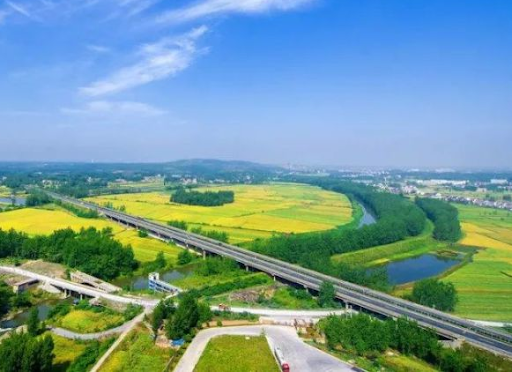International Delegates Praise China’s High-Quality Development in Ecological Protection

Chifeng, The Gulf Observer: A group of international delegates from Laos, Indonesia, the United States, and Japan have commended China’s strides in high-quality development, particularly in the areas of ecological environmental protection and the harmonious coexistence between humans and nature. The delegation, visiting from Sunday to Tuesday, explored the city of Chifeng in north China’s Inner Mongolia Autonomous Region as part of an international seminar. This event was jointly organized by the China Foundation for Human Rights Development and China Datang Corporation Ltd.
The delegation was notably impressed by Inner Mongolia’s advancements in renewable energy, ecological restoration, and efforts to combat desertification.
On Monday, the delegates toured the Saihanba wind farm, a project operated by China Datang. The wind farm has delivered 42.38 billion kWh of green electricity to various regions in northeastern and northern China, equivalent to saving over 13.9 million tonnes of standard coal and reducing carbon dioxide emissions by more than 42.25 million tonnes.
“In the field of renewable energy, China is inventing the future,” remarked Harvey Cary Dzodin, Chairman of HCD Earthcare Culture Association. He noted that the renewable energy sector has provided transformation opportunities for many regions across the country. “I am amazed by what I’ve seen in Inner Mongolia. My previous impression of the region was of sheep, ancient history, and good food, but now it is clear that this land is a leader in renewable energy development.”
The delegates expressed keen interest in China Datang’s future projects and its plans for international expansion, with a strong anticipation of potential collaborations.
Andriah Feby Misna, Director of Various New Renewable Energy at Indonesia’s Ministry of Energy and Mineral Resources, noted significant environmental improvements during her visit. “The last time I visited China, the sky was often gray, but now it is blue. I believe China has made substantial progress in environmental protection and renewable energy development,” she said, emphasizing the potential for clean energy cooperation between Indonesia and China.
On Tuesday, the delegation visited a desertification control area in Ongniud Banner, where they observed a newly constructed road that stretches across the desert. The road is flanked by grass grids that act like a “net” to stabilize the shifting sands.
“I have never seen anything like this before,” commented Dzodin, who, along with other delegates, gathered around Wu Hua, Deputy Director of the Ongniud Banner Forestry and Grassland Bureau, to learn about the region’s sand control measures. Wu explained that reeds are used to create grids to reduce wind speed, followed by planting sand-resistant species within these grids to further anchor the sand.
“This approach not only combats desertification but also provides income to local communities involved in these projects. This is win-win, reflecting China’s commitment to continually improving the lives of its people,” Dzodin said. He also mentioned plans to bring more young people to China to learn about these ecological restoration efforts and contribute to global environmental protection.
The delegation’s visit concluded with a trip to the Ma’anshan forest farm in Harqin Banner. Valaxay Lengsavad, Deputy Head of the Lao People’s Revolutionary Party Central Committee’s Commission for External Relations, acknowledged the challenges locals have overcome to achieve denser forests and more abundant wildlife. He highlighted the potential for Laos, with its rich natural resources, to collaborate with China on ecological protection initiatives.